| Patent law |
|---|
| Overviews |
| Procedural concepts |
| Patentability requirements and related concepts |
| Other legal requirements |
| By region /country |
| By specific subject matter |
| See also |
A patent court is a court specializing in patent law, or having substantially exclusive jurisdiction over patent law issues. In some systems, such courts also have jurisdiction over other areas of intellectual property law, such as copyright and trademark.

The United States district courts are the trial courts of the U.S. federal judiciary. There is one district court for each federal judicial district, which each cover one U.S. state or, in some cases, a portion of a state. Each district court has at least one courthouse, and many districts have more than one. District courts' decisions are appealed to the U.S. court of appeals for the circuit in which they reside, except for certain specialized cases that are appealed to the U.S. Court of Appeals for the Federal Circuit or directly to the U.S. Supreme Court.
A patent attorney is an attorney who has the specialized qualifications necessary for representing clients in obtaining patents and acting in all matters and procedures relating to patent law and practice, such as filing patent applications and oppositions to granted patents.

The United States District Court for the Northern District of California is the federal United States district court whose jurisdiction comprises the following counties of California: Alameda, Contra Costa, Del Norte, Humboldt, Lake, Marin, Mendocino, Monterey, Napa, San Benito, San Francisco, San Mateo, Santa Clara, Santa Cruz, and Sonoma. The court hears cases in its courtrooms in Eureka, Oakland, San Francisco, and San Jose. It is headquartered in San Francisco.
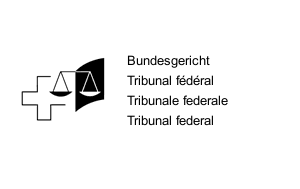
The Federal Supreme Court of Switzerland is the supreme court of the Swiss Confederation and at the head of the Swiss judiciary.
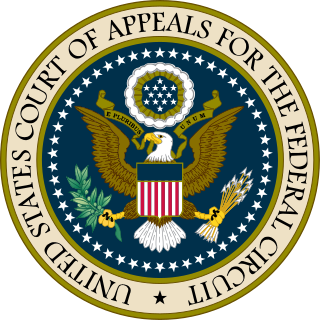
The United States Court of Appeals for the Federal Circuit is a United States court of appeals that has special appellate jurisdiction over certain types of specialized cases in the U.S. federal court system. It has exclusive appellate jurisdiction over all U.S. federal cases involving patents, trademarks, government contracts, veterans' benefits, public safety officers' benefits, Federal employees' benefits, and various other categories. Unlike other federal courts, the Federal Circuit has no jurisdiction over cases involving criminal, bankruptcy, immigration, or U.S. state law.
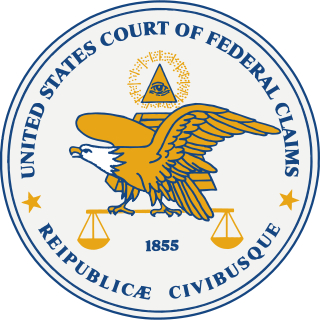
The United States Court of Federal Claims is a United States federal court that hears monetary claims against the U.S. government. It was established by statute in 1982 as the United States Claims Court, and took its current name in 1992. The court is the successor to trial division of the United States Court of Claims, which was established in 1855.
The United States is considered to have the most favorable legal regime for inventors and patent owners in the world. Under United States law, a patent is a right granted to the inventor of a (1) process, machine, article of manufacture, or composition of matter, (2) that is new, useful, and non-obvious. A patent is the right to exclude others, for a limited time from profiting of a patented technology without the consent of the patent-holder. Specifically, it is the right to exclude others from: making, using, selling, offering for sale, importing, inducing others to infringe, applying for an FDA approval, and/or offering a product specially adapted for practice of the patent.
The United States Patents Quarterly (U.S.P.Q.) is a United States legal reporter published by the Bloomberg Industry Group in Washington, D.C. The U.S.P.Q. covers intellectual property cases including patents, copyrights, trademarks, and trade secrets, from 1913 to the present. The publisher stopped the sequence of volume numbers and restarted with a second series, cited as U.S.P.Q. 2d (BNA), in 1987.

Richard Linn is a Senior United States circuit judge of the United States Court of Appeals for the Federal Circuit.

An Oberlandesgericht is a higher court in Germany.
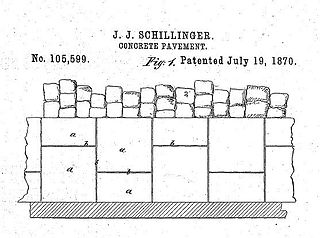
Schillinger v. United States, 155 U.S. 163 (1894), is a decision of the United States Supreme Court, holding that a suit for patent infringement cannot be entertained against the United States, because patent infringement is a tort and the United States has not waived sovereign immunity for intentional torts.
Howard Thomas Markey was an American jurist who served as the first Chief United States circuit judge of the United States Court of Appeals for the Federal Circuit. He is often credited with establishing that court's renown and competence in intellectual property law.
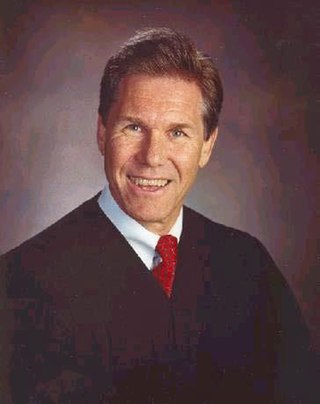
Randall Ray Rader is a former United States Circuit Judge and former Chief Judge of the United States Court of Appeals for the Federal Circuit.

The Swiss Federal Patent Court is a Swiss federal court competent for particular legal matters, such as patent cases. It has its seat in Sankt Gallen, Switzerland.
Patent law in modern mainland China began with the promulgation of the Patent Law of the People's Republic of China, in 1984. This law was modeled after patent systems of other civil law countries, particularly Germany and Japan.
A biological patent is a patent on an invention in the field of biology that by law allows the patent holder to exclude others from making, using, selling, or importing the protected invention for a limited period of time. The scope and reach of biological patents vary among jurisdictions, and may include biological technology and products, genetically modified organisms and genetic material. The applicability of patents to substances and processes wholly or partially natural in origin is a subject of debate.
The unitary patent for Switzerland and Liechtenstein is a patent having a unitary character over the territories of Switzerland and Liechtenstein. It can either be a national patent, or a European patent granted under the European Patent Convention (EPC) and having a unitary character pursuant to Article 142(1) EPC. The unitary patent "may only be granted, transferred, annulled or lapse in respect of the whole territory of protection," i.e. for both Switzerland and Liechtenstein.
The following outline is provided as an overview of and topical guide to patents:

Alan D Albright is a United States district judge of the United States District Court for the Western District of Texas. He was formerly a United States magistrate judge of the same court. Albright oversees a significant portion of patent litigation within the United States. In 2021, the United States Court of Appeals for the Federal Circuit repeatedly rebuked him in a string of opinions for failing to transfer cases to more apt jurisdictions. A quarter of all patent lawsuits in the US were once heard by Albright, who has been widely criticized for ignoring binding case law. However, following a docket-stripping order issued by Chief Judge Orlando Garcia, Albright's patent docket has declined precipitously.

Ordinary court or judicial court is a type of court with comprehensive subject-matter jurisdiction compared to 'specialized court' with limited jurisdiction over specific filed of matters, such as intellectual property court. Due to its comprehensive feature, ordinary courts usually deal with civil case and criminal case, and treated as core part of conventional judiciary. Especially for common law countries, the term superior court is used for courts with general jurisdiction, compared to courts with limited jurisdiction over minor, petty cases such as small claims court.